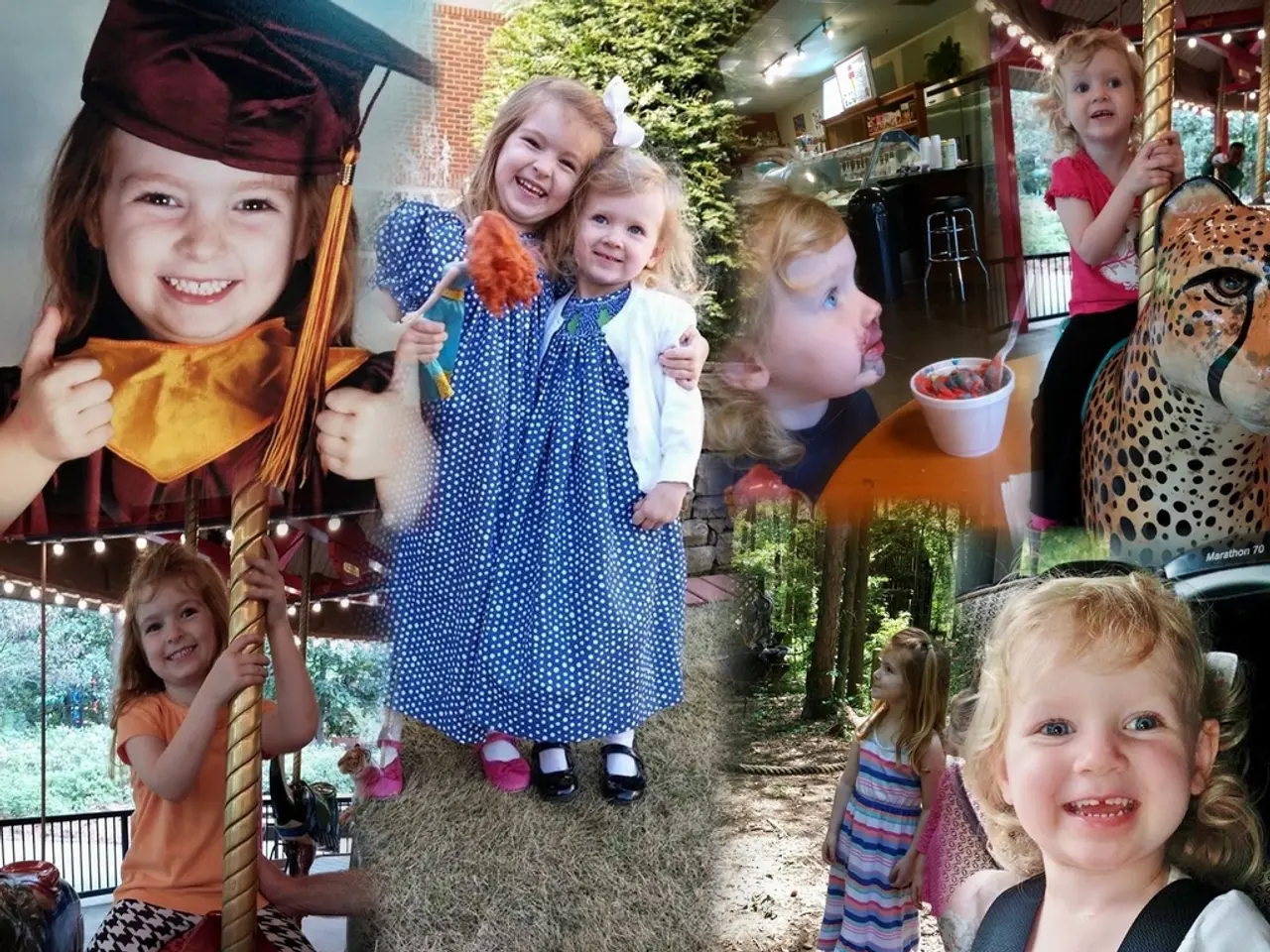Cultivating Intellectual Curiosity: Sowing Seeds of Interest for Enduring Intelligence
In the pursuit of knowledge, curiosity acts as the gardener, tending to the garden of our minds, sowing seeds of new ideas and nurturing them to maturity. Being curious about another person's experience builds emotional bridges, deepens relationships, and fosters shared discoveries.
The brain, much like a garden, thrives on novelty and exploration. Asking questions, seeking out the unfamiliar, and wandering into uncharted fields of knowledge is part of the sowing stage of mental gardening. This process stimulates the caudate nucleus and ventral striatum regions of the brain, areas that light up during moments of curiosity.
Intelligence, we find, is not a trophy. It's a garden, and curiosity is both the gardener and the seed. Games, experiments, and humor trigger curiosity because they create low-pressure environments for exploration. They help us to connect new knowledge to existing frameworks, reflect, practice, and apply it, moving us into the nurturing stage of mental gardening.
Socially curious people tend to be better listeners and more emotionally intelligent. In group settings, curious minds spark debate, challenge assumptions, and co-create new ideas, fostering more inclusive conversations. Play isn't just for children - it's a tool for adult learners too.
But cultivating curiosity isn't always easy. Letting go of outdated ideas, refining beliefs, and questioning assumptions is part of the pruning stage of mental gardening. This process, much like pruning a physical garden, can be challenging, but it's essential for the growth and health of our mental garden.
To boost memory and enhance cognitive performance, practical habits can be adopted. Prioritizing good sleep, practicing active learning, staying organized, using mnemonic devices, revising regularly through spaced repetition, limiting distractions, staying physically active, learning new skills regularly, writing to clarify thoughts, and seeking stimulating social environments are all habits that increase attention, engagement, and cognitive effort, which enhance memory encoding and retrieval.
These habits promote neuroplasticity - the brain’s ability to form and strengthen neural pathways through repetition and learning. Physical exercise increases blood flow and the release of neurotrophic factors that protect and grow brain cells, enhancing memory and cognition. Curiosity triggers dopamine release, improving attention, motivation, and memory consolidation.
Practicing creativity and open exploration activates neural circuits associated with flexible thinking and problem-solving, helping to rewire habitual thought patterns. Over time, habitual engagement with novel and challenging tasks strengthens relevant neural networks, making memory recall faster and learning more efficient.
In summary, practical habits that foster curiosity and memory do so by driving active, engaged learning and neuroplastic change - strengthening and refining brain circuits critical to attention, motivation, and memory formation. This results in improved cognitive performance and adaptability over time. Learning becomes emotionally satisfying due to the release of dopamine, reinforcing further engagement. Curiosity creates a mental state that enhances encoding and recall. It is a powerful mechanism that shapes how, what, and how deeply we learn. Curiosity boosts memory, even for unrelated facts.
So, let's embrace our inner curiosity, sow the seeds of new ideas, and nurture them to maturity. After all, our minds are gardens, and curiosity is the gardener that makes them bloom.
References: [1] Merzenich, M. M., & Schreiner, K. (2013). Neuroplasticity: The Science of Change. Oxford University Press. [2] Bjork, R. A. (2011). Memory Consolidation: The Psychology of Learning and Forgetting. Psychology Press. [3] Kandel, E. R., Schwartz, J. H., & Jessel, T. M. (2000). Principles of Neural Development. Cell Press. [4] Doidge, N. (2007). The Brain That Changes Itself: Stories of Personal Triumph from the Frontiers of Brain Science. Penguin Books. [5] Brown, J. (2018). Make It Stick: The Science of Successful Learning. Harvard University Press.
- In the garden of our minds, creativity sows seeds of new ideas, stimulating the caudate nucleus and ventral striatum regions of the brain.
- Performance in group settings can be enhanced by cultivating curiosity, which sparks debate and fosters more inclusive conversations.
- Adopting practical habits like physically exercising, using mnemonic devices, and seeking stimulating social environments can boost memory and cognitive performance.
- Learning and self-development are stimulated by curiosity, which promotes neuroplasticity, strengthening neural pathways and increasing attention, engagement, and cognitive effort.
- Nootropics and supplements can also aid in enhancing focus, memory, and mental health.
- Innovation is fueled by curiosity, as it challenges assumptions and rewires habitual thought patterns, activating neural circuits for flexible thinking and problem-solving.
- Anxiety can hinder the process of mental gardening, but mindfulness practices and therapy can help prune the garden by refining beliefs and improving mental health.
- The science of learning reveals that focus, attention, and motivation are crucial for enhancing memory encoding and retrieval, and curiosity triggers their release.
- Health-and-wellness, education-and-self-development, and personal-growth (along with good sleep and active learning) are important elements to nurture the mental garden for long-term cognitive growth and adaptability.
- Memory consolidation is improved by curiosity, which releases dopamine, reinforcing further engagement and learning.
- Ultimately, curiosity is a powerful and lifelong mechanism for learning and personal growth, enabling us to learn effectively, efficiently, and deeply.




